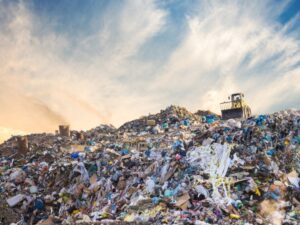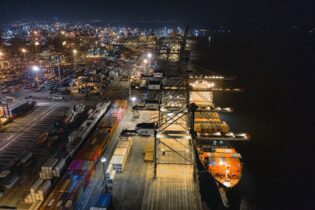The city of Cape Town has assessed the progress of its new waste-to-energy project at the Coastal Park Landfill site in Muizenberg for the generation of electricity to ensure reliable and sustainable power to its residents.
Grant Twigg a member of the Urban waste management, and energy Mayco member Beverley Van Reenen, inspected the site on Tuesday and stated that it would soon be producing electricity from landfill gas with the practical completion of the works expected at the end of July this year. The project is set to produce 2MW, a minor fraction of what the city requires. However, Twigg maintains that the successful implementation of this project was a significant milestone in reaching sustainability goals. Although the excess electricity was set to be exported to the city, Twigg stated that it would not be enough to aid the ongoing issues of load-shedding. “Converting the gas to electricity reduces emissions that contribute to global warming and could damage human health. This will also help offset purchases from Eskom as well as reduce peak demand where electricity is most expensive. The project also reduces the odour at the site,” Twigg said.South African National Energy Development Institute’s (Sanedi) general manager Barry Bredenkamp said there were numerous benefits of using landfill gas to produce electricity, but the most important was that this process removes and avoids the emission of additional harmful gases that are normally released straight into the atmosphere. He further emphasised that these projects present opportunities to address electricity issues.
“This gas is put to productive use by generating much-needed electricity in the current constrained energy situation the country finds itself in. In the current situation we find ourselves in as a country, every kWh (unit of energy) generated from alternate sources should be welcomed and if this technology is replicated at all sizeable landfill sites in South Africa it could make a sizeable difference,” Bredenkamp said. He further highlighted the costs to install the technology used for the process of extracting and converting the waste gas to energy would be reduced significantly than the current generation from Eskom.





